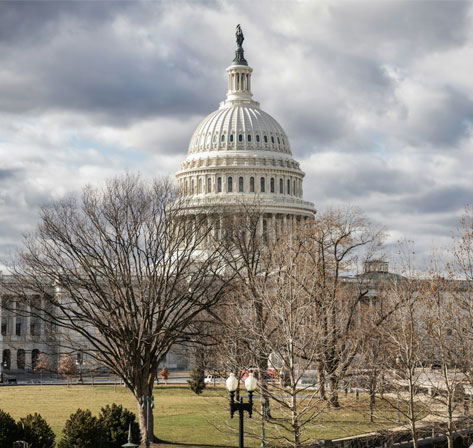January 2023
Possible Next Steps: The U.S. Congress
Region: US
Author: Blue Star Strategies U.S. Team
So, what will be the impact? Conventional wisdom is that the House of Representatives will pass conservative measures that will go nowhere in the Senate - not only because the Senate is led by Democrats but because in practice 60 votes are required to pass any substantive legislation.
As you know, the House of Representatives has a slim Republican majority and to become Speaker, Kevin McCarthy had to cut several “backroom deals” with conservatives to gain their votes. Even after giving up much of the power of the Speaker, McCarthy could only garner sufficient votes to become Speaker with several members voting “present”. As part of his deal to get votes, McCarthy had to agree to significant and consequential changes in the House rules. Unlike in the Senate where the rules have been the same regardless of party control, the House adopts new rules for every new Congress.
So, what will be the impact? Conventional wisdom is that the House of Representatives will pass conservative measures that will go nowhere in the Senate – not only because the Senate is led by Democrats but because in practice 60 votes are required to pass any substantive legislation. Indeed, when Nancy Pelosi was Speaker, progressive legislation passed by the House often failed in the Senate, but ultimately bi-partisan compromises were made that resulted in a national infrastructure bill and investment in the U.S. microchip industry. And those bi-partisan compromises were adopted in the House by Democrats and a small number of Republicans.
But this conventional wisdom is unlikely to apply to this new Congress where much is unknown, and the rules adopted will be implemented for the first time. Conservative Republicans demanded and received the ability to defund programs, offer unlimited amendments to spending bills and oust the Speaker if his promises are not kept. Important matters must be passed by Congress including funding the government and raising the debt ceiling. Conservative Republicans have threatened to bring the government to a screeching halt unless their demands are met.
While the worst legislation may be stopped in the Senate, what will happen to the “must pass” legislation, like funding the government? If House Republicans pass legislation that would cut benefits in mandatory programs like Medicare, the senior health care program, Social Security, the senior pension program or other social safety net programs including subsidies for food, the Senate will, no doubt, reject those cuts but negotiations will be challenging for both parties.
First, from a practical point of view, negotiations between Republicans and Democrats will start from a very different base with Republicans wanting to reduce funding and eliminate programs and Democrats wanting to fully fund programs or, in some cases, increase funding. While these differences always exist, the delta between the parties in this Congress – especially in the House – is much bigger.
Much more impactful, is that House Republicans simply do not want Senate Republicans to compromise with Democrats – and with a 60-vote margin needed for any legislation to pass the Senate, the risk of the House Republicans causing a government shutdown is very real. So, while conventional wisdom correctly predicts that conservative legislation will not be enacted by the Senate or signed by President Biden, there is no conventional wisdom that can predict how a Speaker beholden to a small group of conservative House members can reach compromise to pass much needed legislation – legislation that will allow the U.S. Government to function.
One option – although we have yet to see this option play out under either party – is for Speaker McCarthy to ask Democrats to join with Republicans to pass the legislation that the government needs to function. If that were done, legislation could pass but Speaker McCarthy would face a vote to vacate, and he could be removed as Speaker.
